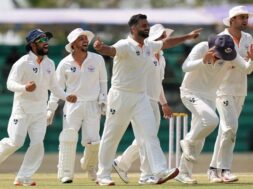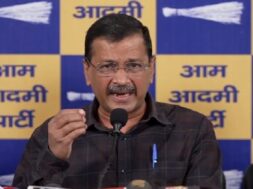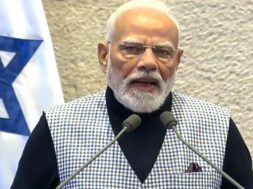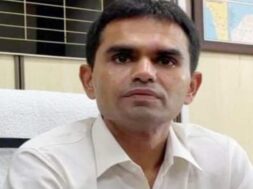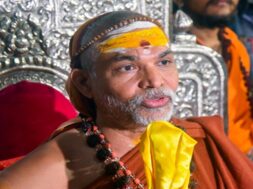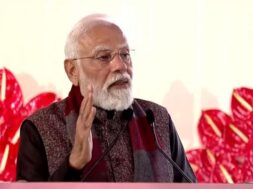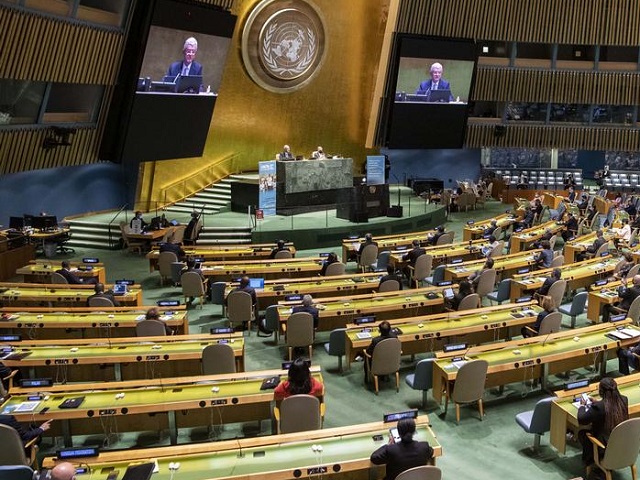
“Pakistan Must Change its Culture of Hatred against Indian Religions,” India at the UNGA
NEW DELHI, Dec 3: India has told the United Nations that a genuine culture of peace in South Asia and beyond could be possible only if Pakistan changed its current “culture of hatred” against religions in India and stopped its support to cross-border terrorism,
Speaking on a resolution on “Culture of Peace” co-sponsored by India at the UN General Assembly on Wednesday, First Secretary in India’s Permanent Mission to the U.N. Ashish Sharma regretted that “in today’s world, intolerance, hatred, violence and terrorism have almost become the norm.”
There can be no doubt that terrorism, which is a manifestation of intolerance and violence, is the antithesis of all religions and cultures, he said.
“If Pakistan changes its current culture of hatred against religions in India and stops its support of cross-border terrorism against our people, we can attempt a genuine culture of peace in South Asia and beyond,” Sharma said.
India on Wednesday co-sponsored a resolution presented by Bangladesh titled “Follow-up to the Declaration and Programme of Action on a Culture of Peace.”
The resolution reiterates that the objective of the effective implementation of the Programme of Action is to strengthen further the global movement for a culture of peace. It invites member-states to continue to place greater emphasis on and expand their activities promoting a culture of peace at the national, regional and international levels and to ensure that peace and non-violence are fostered at all levels.
“Till then we will only be mute witness to Pakistan driving away their minorities by threat, coercion, conversion and killing. Even people of the same religion are not spared due to encouragement given to sectarian killing,” he said, referring to the reports of atrocities against religious minorities in the neighbouring country.
He said India was troubled by the increase in resources, financial and otherwise, that are being made available to violent and terrorist groups that misuse religion to justify and propagate their agendas.
“We need to be clear that abetting or condoning terrorism is like feeding a monster that will turn around to consume us,” he said. “India call on the U.N. member states to fight such negative forces together, rather than separately. Let us build a culture of peace together, rather than fail separately,” Sharma said.
Sharma also regretted that some of the major member-states of the UN adopting selective views on the religions in the world and said any partisan attitude by the UN for a few religions would not ensure the culture of peace. “India fully agrees that anti-Semitism, Islamaphobia and anti-Christian acts need to be condemned and the country also firmly condemns such acts,” he pointed out, adding that U.N. resolutions on such important issues spoke only of these three Abrahamic religions together. “This august body fails to acknowledge the rise of hatred and violence against Buddhism, Hinduism and Sikhism also,” he said.
“Culture of peace cannot be only for Abrahamic religions. And as long as such selectivity exists, the world can never truly foster a culture of peace,” he said.
Asserting that the U.N. was not a body which should take sides when it came to religion, Mr. Sharma said “If we are indeed selective, the world will end up proving American political scientist Samuel Huntington’s ‘clash of civilisations’.”
“What we are trying to build here is an ‘alliance of civilisations’, not set up a clash. I call on the U.N. Alliance of Civilisation to act likewise and speak for all, not just a select few,” he said.
Meanwhile, the Indian external affairs minister S Jaishankar virtually ruled out any diplomatic efforts any more to improve ties with Pakistan. To a question if any diplomatic efforts were on between the two countries, Jaishankar in an interview to a national daily replied in the negative. “No. I think the ball is very much in Pakistan’s court because they have to make up their mind on what they are going to do on the issue of cross border terrorism,” he said.
Jaishankar pointed out that Narendra Modi government made best of efforts initially to improve the ties with Pakistan, but to no avail. “Look, our challenge with Pakistan is this desire for better ties was evident from day one. I mean, from the fact that, you know, the Pakistani Prime Minister was invited to be swearing in 2014. We tried very hard to make it work, including [in] that the Prime Minister actually visited Pakistan. But the fact was that what we saw from the other end, where, you know, [there were] egregious acts of cross border terrorism,” he said.
(Manas Dasgupta)
